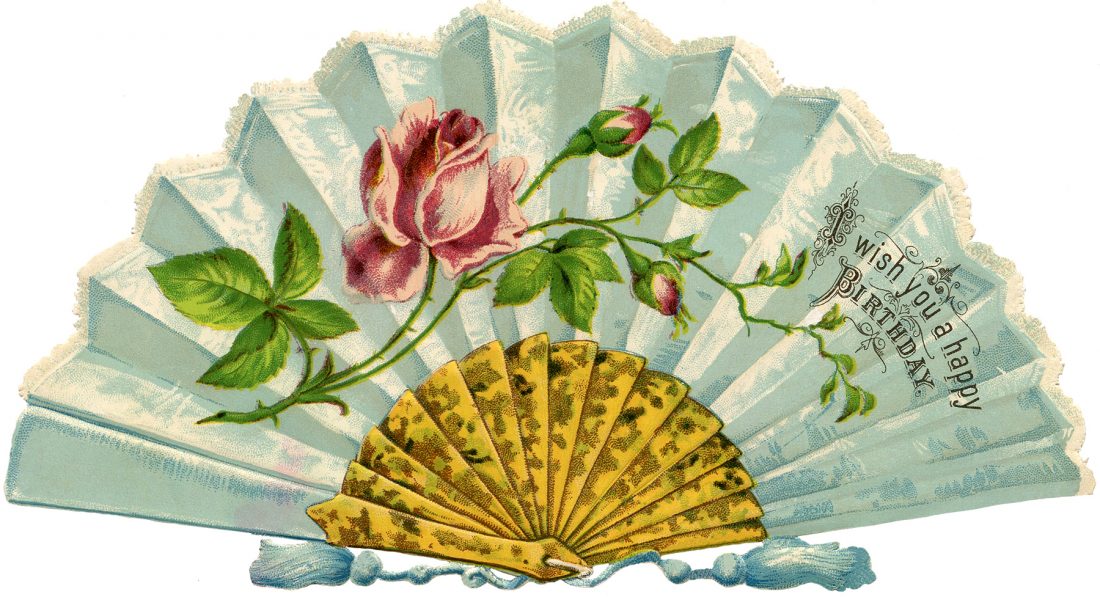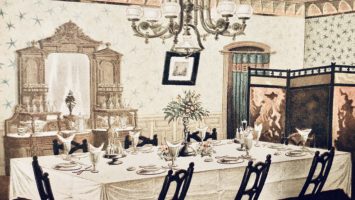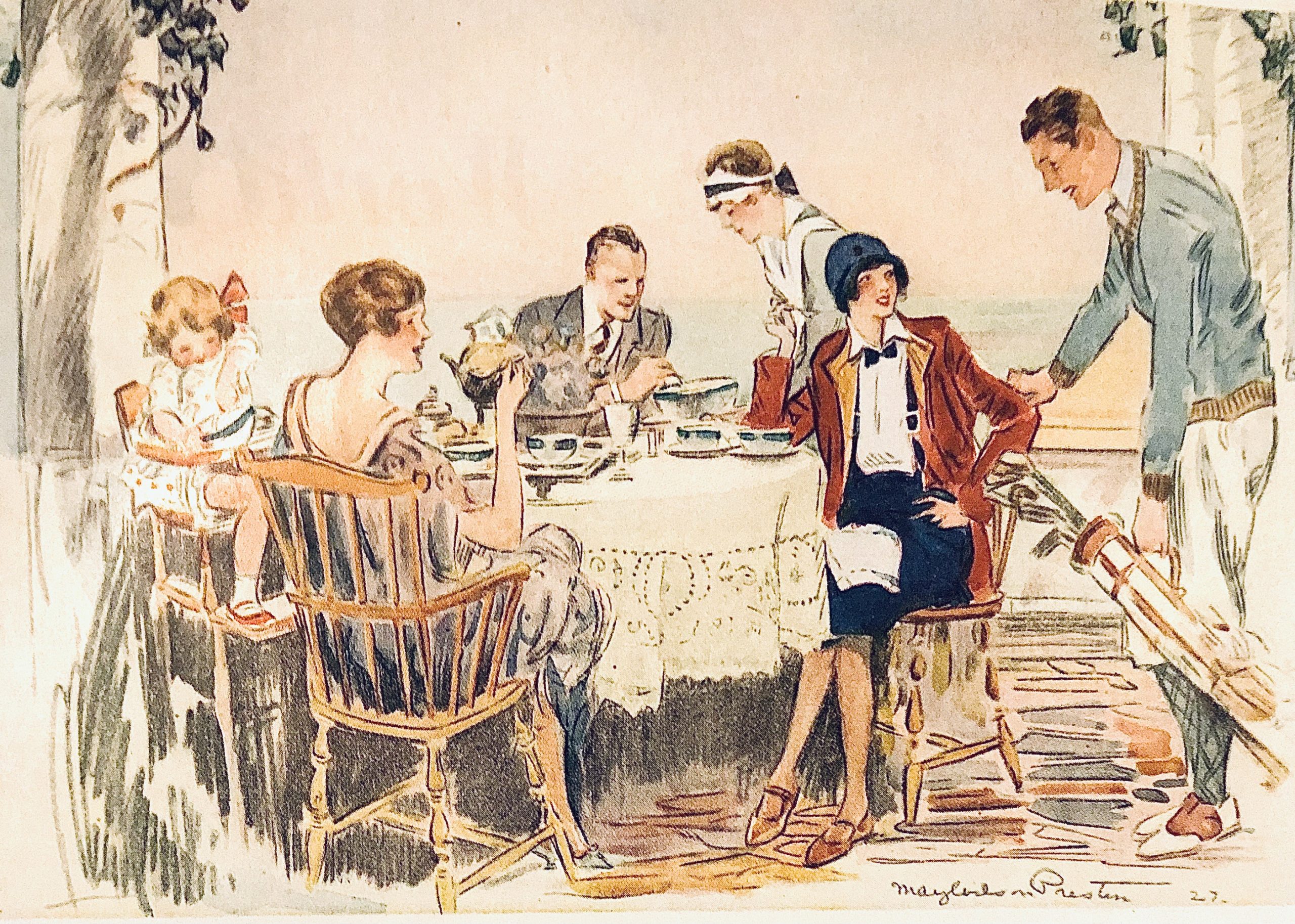“It is always best to give something of your own production or discovery. If the recipient has any love for you, the value of the gift will be enhanced many fold by being the offspring of your effort and skill.”
American Etiquette and Rules of Politeness by A.E. Davis, 1882
So, what was a Gent to do if he wasn’t good at picking out gifts? Well, as we know, the Victorian’s loved classifications and subtle meanings. From plants to animals, everything was listed and categorized. Some of these were based on existing science, some were just nonsense. Falling into the nonsense categories were items like birthstones, the meaning of flowers and birth colors.
Coinciding with the birth of middle class capitalism, these lists seemed to be an easy way for people to come up with personalized gifts while entertaining the Victorians love for secret meanings and classifications.
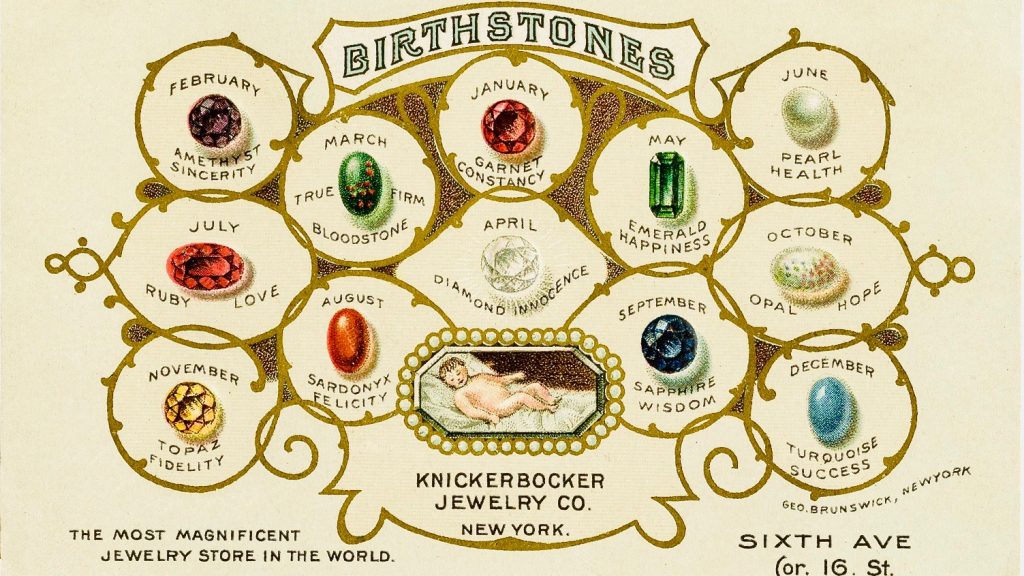
Birthstones
“Many interesting and curious things might be written concerning precious stones. Romance and imagination have ascribed to the various stones so many meanings, that it will be worth recording some of the most important. For instance, some people are very careful in sulfating stones for present; fearing the health, life, and happiness of the donce might be injured. the following is offered for each moth in the year.”
Polite Life and Etiquette by Georgene Corry Benham, (1891)
January Garnet
February Amethyst
March Aquamarine / Bloodstone
April Diamond
May Emerald
June Pearl
July Ruby
August Peridot / Sardonyx
September Sapphire
October Opal
November Topaz
December Turquoise
This is by no means a definitive list though these are the most common. Some explanations for why these stones were chosen is in Polite Life and Etiquette:
“January. the garnet, signifying constancy and fidelity. February. Amethyst meaning sincerity. March. Bloodstone, denoting courage. April. Sapphire, repentance. May. Emerald, success in love affairs. June. Agate, heath and long life. Deriving its name from the river Achates, in Sicily, where it is found. July. Ruby, forgetfulness. August. Sardonyx, conjugal fidelity. September. Chrysolite, freedom from all evil and sadness of the mind. October. Opal, hope and faith. November. Topaz, fidelity and friendship. Being so named for the island (Topanzos) in the Red Sea, where found, by some authorities form the Greek topazion. December. Turquoise, prosperity. Diamond – is innocence. Pearl – is purity. Cornelian – Menu contentment. Moonstone – Protects one from danger.”

Twentieth Century Etiquette by Annie Randall White, (1900) included little rhymes with each month’s stones.
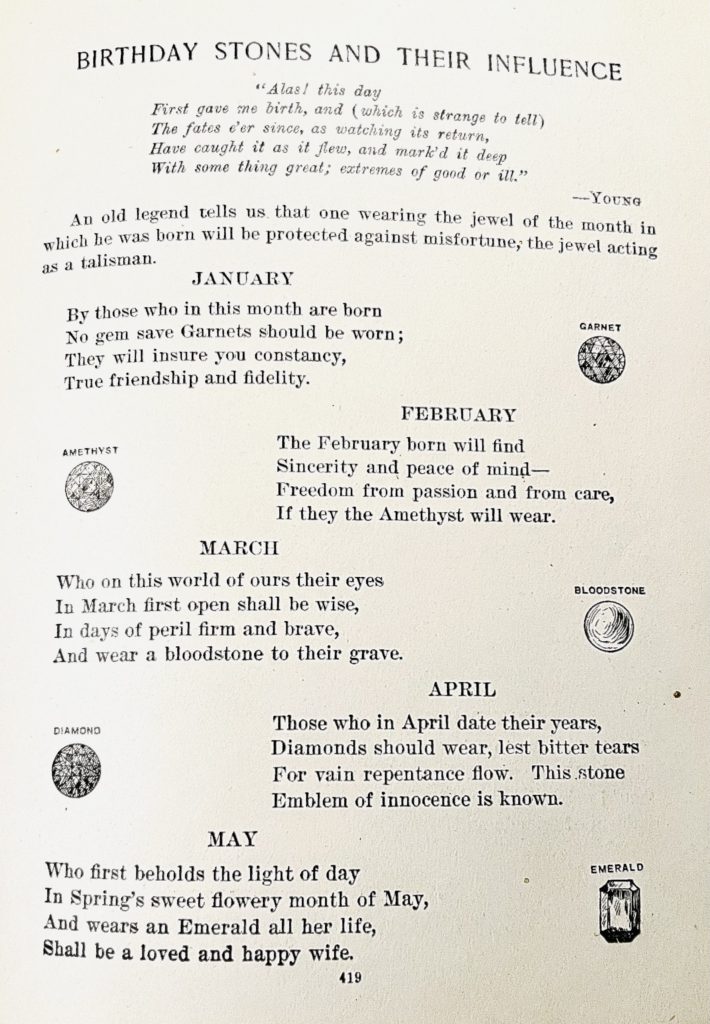
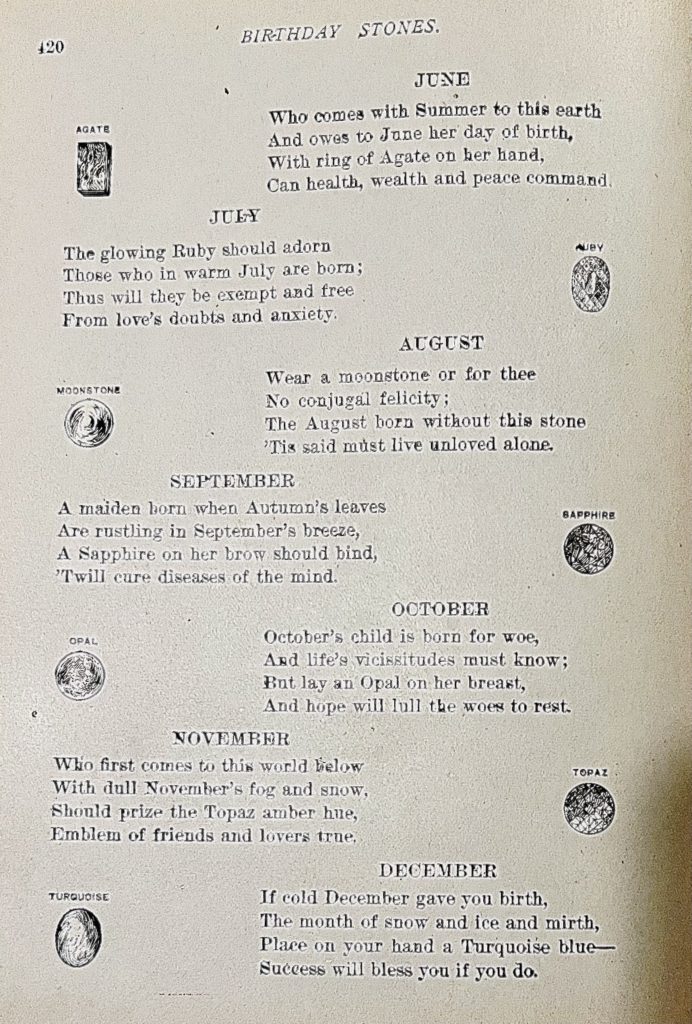
In modern times, we still like birthstone jewelry, but we’ve replace the aquamarine for the Bloodstone and Peridot for the Sardonyx. Some lists have moonstone instead of Pearl, most likely because of cost. The Victorians seem to have had a wider range of what they considered feminine and/or pretty. Now-a-days a jeweler isn’t going to sell many March or August items using the decidedly not-sparkly stones the Victorians enjoyed.
Flowers
Some of these lists vary widely. The list I have here is just the most common list from multiple etiquette guides.
January Carnations
February Violets
March Jonquils
April Sweet Peas
May Lily of the Valley
June Roses
July Larkspurs
August Gladiolus
September Asters
October Calendula
November Chrysanthemums
December Narcissus
Colors
January White
February Lilac or Violet
March Light Blue or Chinese Blue
April Pink
May Green or Jade
June Yellow
July Blue
August Mauve
September Purple
October Orange
November Brown
December Red
I have also seen an earlier list where December was Gold, January was Silver, February was white, July was Crimson and August was Blue. I’ve only seen these lists in scrapbooks, cut out of papers and magazines. They feel a bit random, one gets the feeling that these lists were just made up by magazine and newspaper editors.
May this help you with future gift giving!
Much love, Cheri
